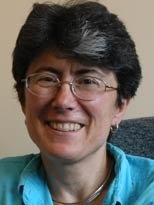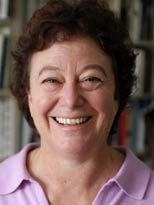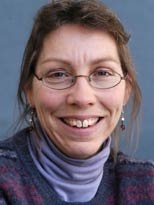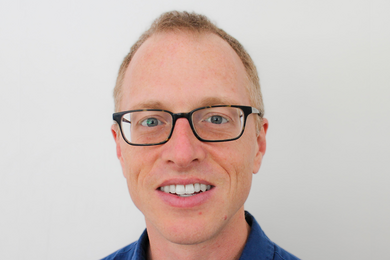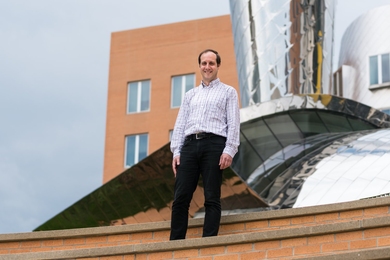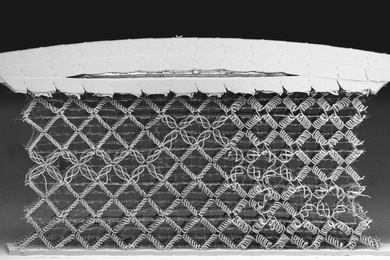A pioneering collaboration among prestigious Boston-area universities to advance women's studies scholarship is now housed and administered at MIT.
The Graduate Consortium in Women's Studies (GCWS), launched in 1992, provides team-taught interdisciplinary graduate seminars and other opportunities for collaboration in scholarship through curriculum development and faculty workshops.
Elizabeth Wood, director of women's studies and professor of history, said, "We are thrilled to have GCWS move to MIT. Its presence gives faculty opportunities to teach graduate courses that are both interdisciplinary and interuniversity. The consortium's presence here raises MIT's profile as an institution that is producing cutting-edge work not only in science and engineering but also in the many and diverse fields that fall under the rubric of women's and gender studies."
In addition to MIT, GCWS members include Boston College, Brandeis University, Harvard University, Northeastern University, Simmons College, Tufts University and the University of Massachusetts at Boston. The consortium was previously housed at the Radcliffe Institute for Advanced Study at Harvard.
Ruth Perry, professor of literature and founding director of women's studies at MIT, was one of the founding members of GCWS, known collectively as the "Mother Board."
Perry "expect(s) the GCWS to thrive here. The MIT administration has always been very supportive of this collaborative intellectual enterprise," she said.
Anne McCants, associate professor of history and MacVicar Faculty Fellow, said, "It seems especially fitting to move the consortium to MIT because MIT has assumed such an important role in the national discussion about the status of women in the university community, and their unique contributions to it."
GCWS courses include topics as diverse as "Narratives of Kinship in Developing Countries" and "Gender and Science." Faculty trained in at least two different disciplines co-teach GCWS interdisciplinary graduate seminars, with each one bringing expertise to bear on significant issues where gender makes a difference, Perry noted.
McCants has found "rich rewards in teaching across disciplines - the faculty learn easily as much as the students," she said.
GCWS Program Coordinator Andrea Sutton noted that collaboration within GCWS challenges faculty and students and advances the field of women's studies.
"Cooperative preparation and pedagogy challenges faculty to take a fresh look at familiar material and explore new ideas related to their discipline. This practice often provides the foundation or inspiration for new publications or invigorated avenues of interest and research. Also, using the GCWS model on the administrative, scholarly and pedagogical levels helps to significantly advance the field, producing new research, action and activism," she said.
Sutton finds it "particularly appropriate that the program be housed at MIT," she said.
"MIT is a site for so much revolutionary discovery in all fields, much of which comes about through creative collaboration across disciplines. Though still new to MIT's climate and culture, I've seen an entrepreneurial underpinning to the work here across the humanities and sciences alike.
"This 'MIT approach' closely parallels that of GCWS. Our collaborative, interuniversity structure and courses require eagerness, analysis and evaluation in an untraditional environment as well as willingness to develop new methods - territory familiar to MIT students in all fields of study," she said.
Housing GCWS at MIT lays the "groundwork for a ripe and fruitful collaboration," thanks to the potential for crossover in scholarly methodology and application of feminist and gender theories in fields such as biology, chemistry, physics, media arts, critical theory and architecture, Sutton said.
GCWS is governed by a rotating board of faculty representatives from each of the member schools.
Other GCWS Mother Board members are Joyce Antler (Brandeis University), Laura Frader (Northeastern University), Carol Hurd Green (Boston College), Barbara Haber (Radcliffe College), Alice Jardin (Harvard University) and Christiane Romero (Tufts University).
A version of this article appeared in MIT Tech Talk on October 19, 2005 (download PDF).
